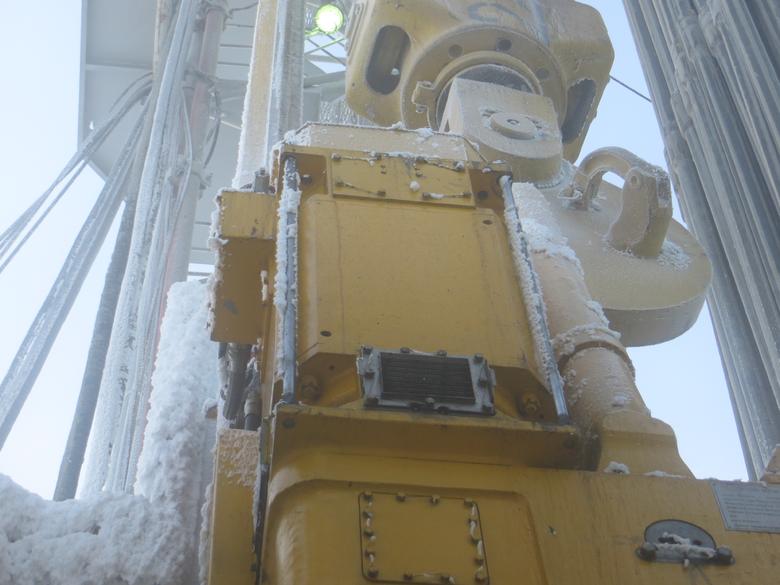
COOPERATION WITH RUSSIA

One of Russia's largest energy projects would struggle if the west followed through on threats to sanction technology exports to the Russian oil and gas industry, according to a senior executive at Total, the French oil major that is a partner in the project.
Yves-Louis Darricarrère, head of upstream at Total, told the Financial Times that the $27bn Yamal liquefied natural gas project's reliance on US technology highlighted the interdependence of Russia and the rest of the world.
"Yes we need US technology," said Mr Darricarrère. "Oil and gas industry technology comes from many countries in the world. That's why we need co-operation not confrontation."
Tensions between Moscow and Kiev have escalated in the past week amid rising bloodshed in eastern Ukraine and a move by Gazprom to stop gas supplies to Ukraine. But western oil and gas executives gathered in Moscow this week for the World Petroleum Congress, one of the largest meetings of the global energy industry, echoed Mr Darricarrère's message of conciliation.
Bob Dudley, chief executive of BP, one of the largest foreign investors in Russia through its 19.75 per cent stake in Rosneft, said the world could not do without Russian energy.
"I think the fact that Europe depends on Russian gas and Russia depends on European revenues creates an important link and I do believe that energy can act as a bridge," said Mr Dudley. "The interdependence of suppliers and consumers is a force of stability in a very turbulent world."
US sanctions against Moscow in response to the Ukraine crisis have targeted some of the key figures in the Russian energy sector including Igor Sechin, chief executive of Rosneft, and Gennady Timchenko, one of the largest investors in the Russian energy industry.
However, the energy executives gathered in Moscow played down their impact. Mr Dudley reiterated that it was "business as usual" for BP in Russia, while Mr Sechin told the conference he saw sanctions as a "competition tool".
Western groups have continued to strike deals in Russia since the first sanctions were announced, with Total agreeing a joint venture with Lukoil, the country's largest private-sector oil company, and BP signing an agreement with Rosneft – both to develop Russian shale oil resources.
Indeed, analysts and executives say the opportunities in Russia are simply too attractive for western majors, hungry for new resources and struggling with costly white elephants around the world, to ignore – especially as Moscow is offering a range of tax breaks to companies developing new and challenging deposits.
"Russia is still such an attractive proposition," said Richard Pollard, head of oil and gas for Russia and eastern Europe for PwC. "We're going to continue to see transactions between western companies and Russian companies."
Mr Darricarrère said that Russia would be the largest contributor to Total's oil production by 2020, adding that it intended to increase its stake in Novatek, a gas company in which Mr Timchenko holds a stake, from 17.8 to 19.4 per cent.
For ExxonMobil, the world's largest energy company by market value, a joint venture with Rosneft to explore the Kara Sea in the Arctic is one of the company's most attractive growth prospects.
Rex Tillerson, Exxon's chief executive, who sat on stage next to Mr Sechin at the opening of the conference, reconfirmed the company's commitment to Russia. "In the years ahead, we look forward to taking advances achieved in Far East Russia and building upon them to unlock new supplies of oil and natural gas in the Kara Sea and beyond," he said.
The Yamal LNG project, in which Total holds a 20 per cent stake, saw one of the most obvious impacts from the Ukraine crisis when the US Export-Import bank pulled out of financing for it.
But Mr Darricarrère said the consortium was talking to "a large number of institutions", including other national export credit agencies, and Russian and Chinese banks, and that the project remained on track.
However, he conceded that sanctions on the use of western technology would be a challenge, noting that the project was relying on US technology for its cooling system. The US has hinted that further sanctions against Russia could take the form of restrictions on sales of US technology to the oil and gas sector.
"Clearly you need US technology. But so far there have not been sanctions," Mr Darricarrère said. Yamal, due to start production in 2017, is slated to be the first of a wave of new Russian LNG projects, including Gazprom's Vladivostok LNG and a Rosneft-Exxon joint venture in the far east of the country.
ft.com





